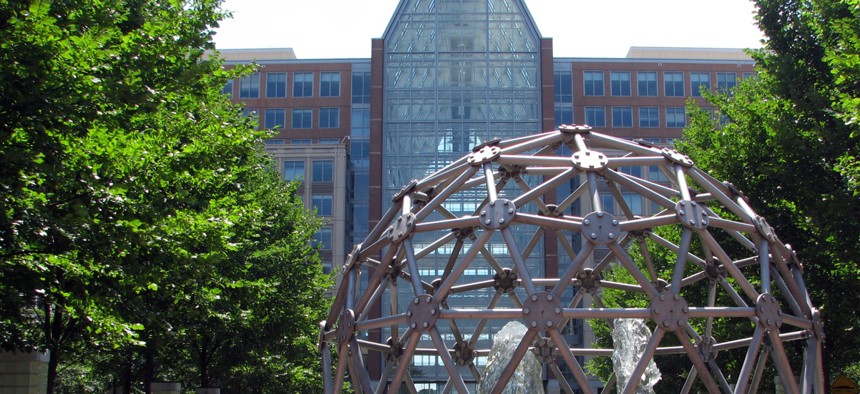
U.S. Patent and Trademark Office headquarters in Virginia. Daniel J. Macy/Shutterstock.com
Patent and Trademark Office Examiners Receive Monetary Awards With Insufficient Oversight
Some staff are allowed to make manual changes to their hours worked, while part-time patent examiners’ schedules are often not up to date in the awards calculation system.
The Patent and Trademark Office needs to step up oversight of how monetary awards are distributed to patent examiners, the Commerce Department's watchdog found.
In a report dated August 22, the inspector general found that USPTO lacked a “standardized process to calculate awards payments” and that the agency did not validate the accuracy of timesheets included in award calculations.
“Without adequate and appropriate oversight, USPTO is unable to detect and prevent erroneous award payments, possible abuse of the award program, and wasted funds that can be put to better use,” the inspector general wrote.
Although USPTO calculates awards through an automated system—the Supervisory Patent Examiner Management Database (SMD)—staff responsible for administering awards could not adequately explain how the system works.
“As an illustration of this lack of understanding, USPTO took four months to provide us with sufficient information to confirm its award process,” the inspector general wrote. “Initially, USPTO personnel stated that the calculation process was automated, with SMD automatically calculating each award based on [Patent Application Locating and Monitoring System] data . . . Because USPTO had no centralized point of contact or standardized process for calculating award payments, we repeatedly asked multiple personnel the same questions to obtain answers.”
One of the factors included in the calculation of monetary awards are patent examiners’ working hours. But the inspector general found that the agency allows supervisory patent examiners to manually add hours spent on certain activities that are not included in the system by default, but did not validate the legitimacy of those additions.
“USPTO does not require [supervisory patent examiners] to document support for adding examining-related hours,” the report stated. Without such documentation, the agency cannot validate the supervisors' reviews or the award payments, the IG found.
The risk for over- or underpayment of awards is greater among part-time patent examiners, the IG found.
“Part-time patent examiners can receive prorated pendency awards based on their work schedules,” the report said. Supervisors "must manually input examiner work schedules into [the database] to calculate pendency awards for part-time examiners. We found that [the supervisors] did not update [the database] work schedules when examiners adjusted their work schedules or changed their part-time/full-time status.”
The inspector general recommended implementing guidance to better define the “policies, process, validation and oversight responsibilities” related to the calculation of monetary awards and clarify what types of activities are eligible for inclusion in awards calculations. The office also recommended establishing a system to review manual adjustments made in the calculation system as well as ensuring that patent examiners’ schedules are accurate in the system. USPTO concurred with all recommendations.







